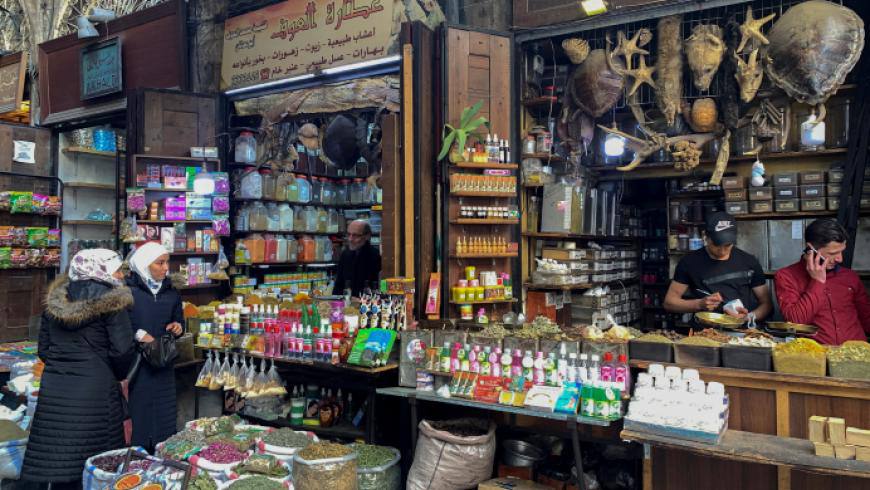Many patients in Syria resort to herbal medicine, either out of despair of taking drugs without benefit, or they are convinced of the benefit of herbs, or even due to their lower prices compared to pharmaceutical drugs.
The names of herbal treatments vary, such as Arabic medicine, alternative medicine, or complementary therapy -as called by the therapist Bilal Abu Mahmoud, a specialist in physical therapy and herbalism. He allocated a room in his home in Idleb city to receive patients who want a herbal prescription. He says: “Herbs can not be a substitute for medicine and treatments in pharmacies, but they may complement and support it. Herbs also increase the immunity of the body. For example, relying on honey and ginger, and some flowers and herbs to treat coughs and colds has several benefits that cannot be denied.”
Apothecary shops and medicinal herbalists have become the destination of many people in northern Syria. Some of those we met say that the prices of medicines in pharmacies are very high, and sometimes not available, which made them look for an alternative, such as herbal medicine.
Abu Muwaffaq, a resident of Idleb city, says he “keeps a box in his room containing many complex natural oils to treat joint and disc pain. He also keeps leafy herbs for coughing and sore throat, which he cannot abandon. All their prices combined do not exceed the price of a single box of medicine from the pharmacy.”
Read Also: On the Brink of Famine, Syrians Reduce Meals to “Essentials”
But pharmacist Alaa believes that herbs are a double-edged sword, they can do more harm than good if large and ill-considered quantities are taken. They are never an alternative to pharmaceutical drugs.
In Damascus, there are many apothecary shops in the markets and there is a famous private market called al-Buzuriya where any type of herb or class of herbal medicines can be found. Young Nada visits the market weekly, like hundreds of customers, to buy what she needs in order to make her natural beauty treatments.
“I inherited a good experience from my grandmother, who was an expert in herbal medicine, but I was more interested in beauty, skincare, and hair care. I prepare recipes made of natural oils to enhance the skin’s freshness and to strengthen the hair, treat acne and pimples, among other beauty-related treatments,” Nada says.
Nada transformed her grandmother’s recipes and used some books and videos to make her own packages, which she sells to her friends, relatives, and customers. She said that she gained their trust as her products are effective, which allows her to secure a good income by selling large quantities.
This article was translated and edited by The Syrian Observer. The Syrian Observer has not verified the content of this story. Responsibility for the information and views set out in this article lies entirely with the author.


